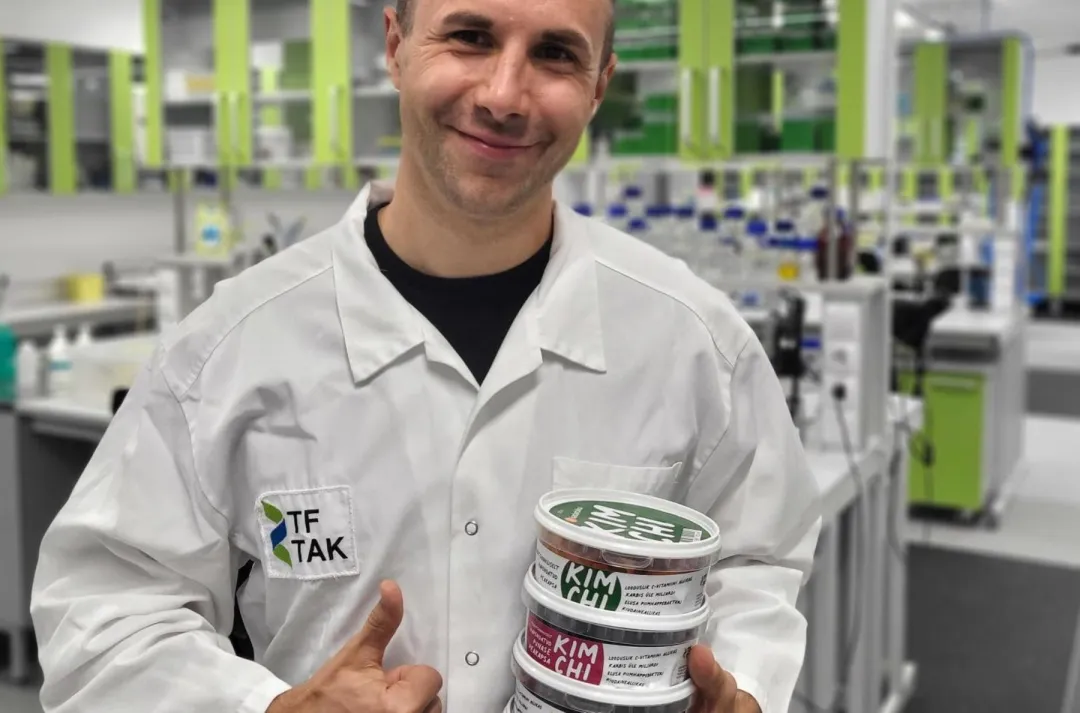General information
RDP Priority
- P2. Competitiveness
RDP Focus Area
- 2A: Farm’s performance, restructuring & modernisation
RDP Measure
- M16: Cooperation
Beneficiary type
- Farmer / land manager
Summary
CAP support for a farm investment project helped to create new jobs and diversify the rural economy in Estonia by supporting the expansion of profitable value chains for fermented vegetables. Project actions developed and assessed recipes and innovative fermentation technologies for various vegetables and analysed how the fermentation process influences gut bacteria.
Product prototypes were developed in labs before being scaled up for pilot testing and final technology transfer to production facilities. Additionally, a cross-cultural consumer study was conducted in Estonia, Finland, and Latvia to understand taste preferences across these countries. The final prototypes underwent shelf-life studies to ensure long-lasting value.
This project paves the way for innovative fermented vegetable products that boost farm income, reduce food loss, contribute to climate action, and support a healthy gut microbiome for consumers.
Results
- Two new jobs were created, and more employment in fermentation processing is possible from value-added products that increase the company’s revenue.
- Two new fermented products were launched on the market and up to three more new commercial products are planned following findings from the project.
- 300 consumer tests were conducted, and more than 50 people participated in the health impact study.
- The project’s multipurpose economic, social, and environmental benefits were recognised by the ‘Best value-added product of the year 2024 in Estonia’ and ‘Best vegetable products of 2024 in Estonia’ awards.

Promoter
Kadarbiku Köögivili OÜ
Funding
Total budget 388 575 (EUR)
EAFRD: 279 774 (EUR)
National/Regional: 69 944 (EUR)
Private/own: 38 857 (EUR)
Keywords
Ressources
Context
Fermented vegetables, such as kimchi and sauerkraut, are becoming known as commercial superfoods due to their rich nutritional profile and health benefits. The fermentation process enhances the bioavailability of nutrients, promoting gut health through the proliferation of probiotics, which can support immune function and digestion.
Growing consumer demand for healthy, functional foods underscores the market potential for fermented vegetables. As awareness surrounding the role of the gut microbiota in overall health rises, businesses can capitalise on this trend by offering a diverse range of innovative plant-based food products that cater to health-conscious consumers.
Fermented vegetables offer many positive commercial opportunities for agrifood value chains, such as new product ranges with attractive flavour profiles to expand culinary options, consumer choice, and business revenue streams. Less food waste is another benefit, since fermented products have longer shelf lives and make use of so-called ‘ugly’ vegetables. Traditional culinary cultures can also be conserved by these value chains.
The Kadarbiku farm in Estonia was the beneficiary of this project. The farm grows and processes vegetables.
Objectives
Key goals for the project sought to improve the farm’s viability and competitiveness by supporting the development of healthy new agrifood products, practices, processes and technologies. In addition, the project aimed to increase rural employment prospects by promoting new added-value opportunities in food value chains. Outcomes would be to improve the shelf-life of vegetable products and help increase the uptake of plant-based diets, which have advantages in terms of health, climate, and the rural environment overall.
Activities
Project benefits were gained by the following actions:
- knowledge gathering and sharing between project personnel about vegetable fermentation;
- testing fermentation technologies at lab scale to clarify recipes, fermentation conditions, suitable raw materials, etc. This included a Master thesis at Tallinn University of Technology, presentations at scientific conferences about Food Systems Microbiomes, and a Symposium on Lactic Acid Bacteria, as well as scientific articles;
- piloting fermentation prototypes (up to 10 kg);
- a professional sensory panel ensured exceptional taste, while analytical measurements (sugar and organic acid profiles, metagenomics) guaranteed consistent quality and fermentation success;
- shelf-life studies (shelf-life up to 12 months was tested);
- industrial scale tests of fermentation technologies;
- international market research study of more than 300 consumers promoting five different fermented vegetables prototype products in Estonia, Latvia and Finland;
- dietary intervention studies with fermented vegetables investigated the potential health benefits of consuming fermented vegetables. Participants followed a three-week regime of unfermented vegetables, followed by a two-week control period and then three weeks with fermented vegetables. Body composition and microbiota were analysed, revealing positive health impacts associated with regular fermented vegetable consumption;
- results dissemination via events, media, and scientific publications;
- producing a multi-lingual (Estonian and English) cookbook encouraging fermented vegetable consumption.
Main results
Key project outcomes included:
- two new jobs were created, and more employment in fermentation processing is possible from value-added products that increase the company’s revenue;
- two new fermented products were launched on the market, and up to three more new commercial products are planned following findings from the project;
- a total of 300 consumer tests were conducted, and more than 50 people participated in the health impact study;
- recognition of the project’s multipurpose economic, social, and environmental benefits by the ‘Best value-added product of the year 2024 in Estonia’ and ‘Best vegetable products of 2024 in Estonia’ awards.
Key lessons
Healthy eating habits continue to offer new opportunities for agrifood value chains to introduce new nutritious products and reformulate existing food production.
Fermented vegetables represent a higher-value product compared to raw vegetables, creating additional revenue stream options for farms.
The new fermented products hold greater export potential compared to raw vegetables, expanding market reach for producers.
The project's technologies enable the creation of new and healthy fermented food products for consumers.
This project is a good example of a farm working closely with food scientists to gain new knowledge focused on industrial-scale technology transfer.
"Fermented foods are back, and people love them! And we proved that they are not only tasty, but also super healthy."
